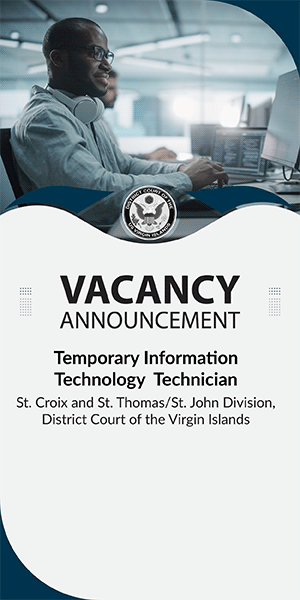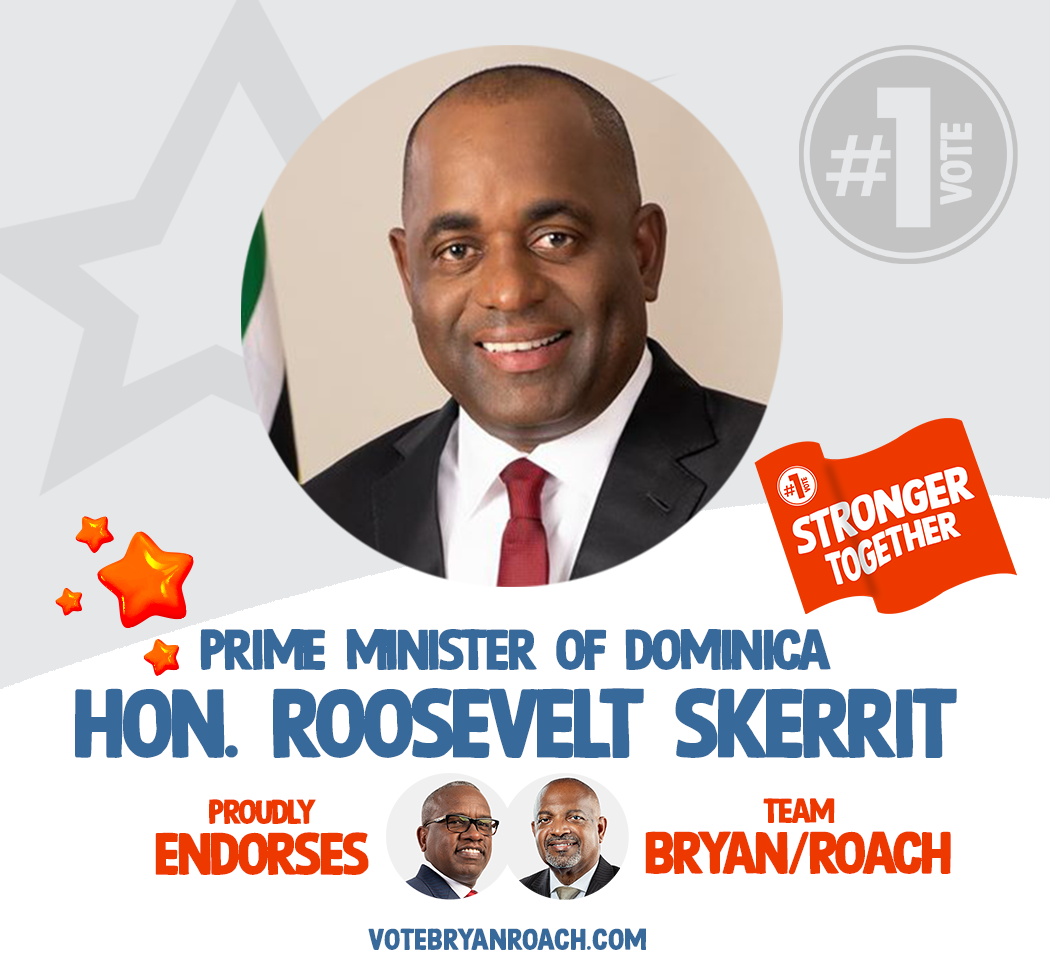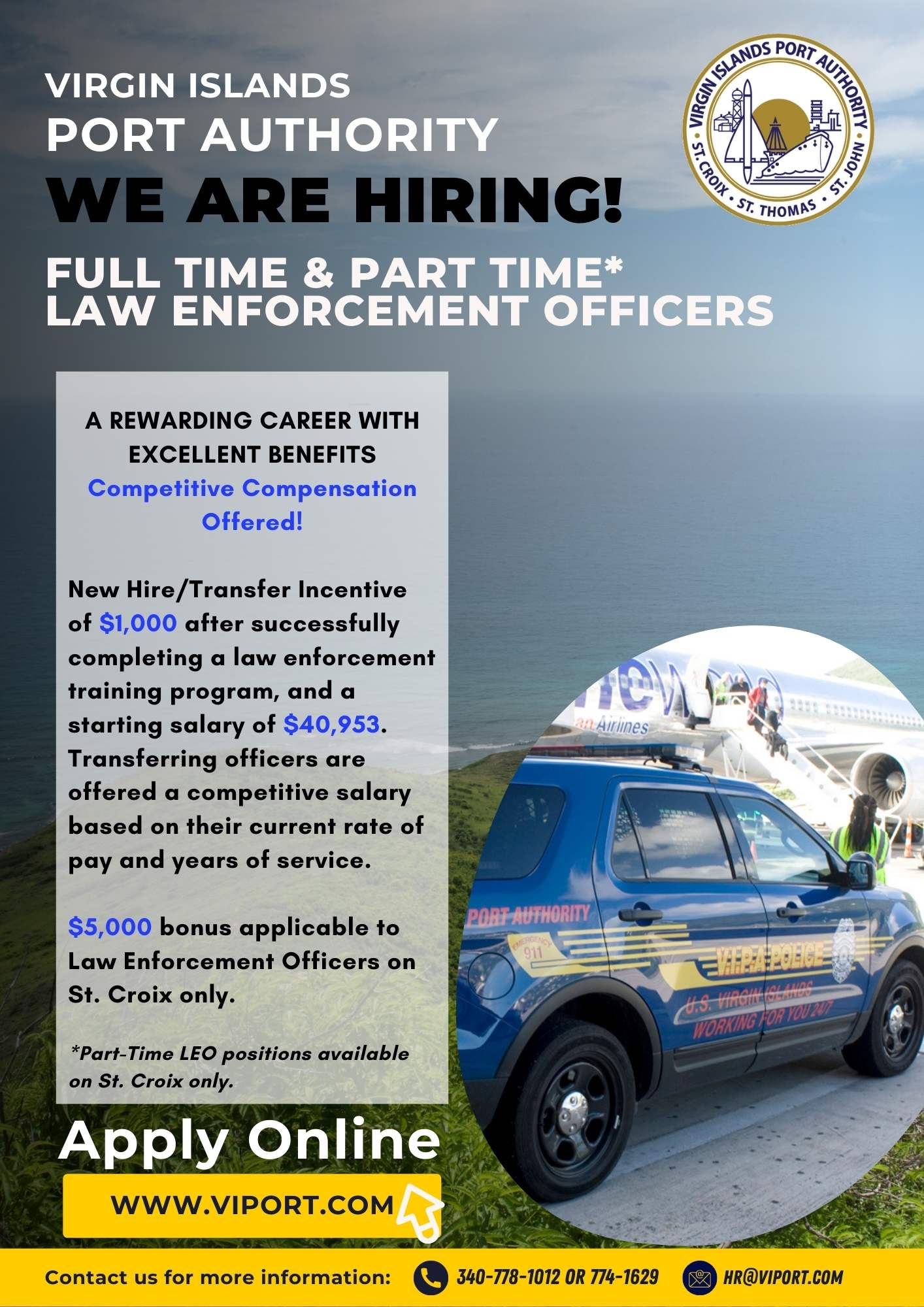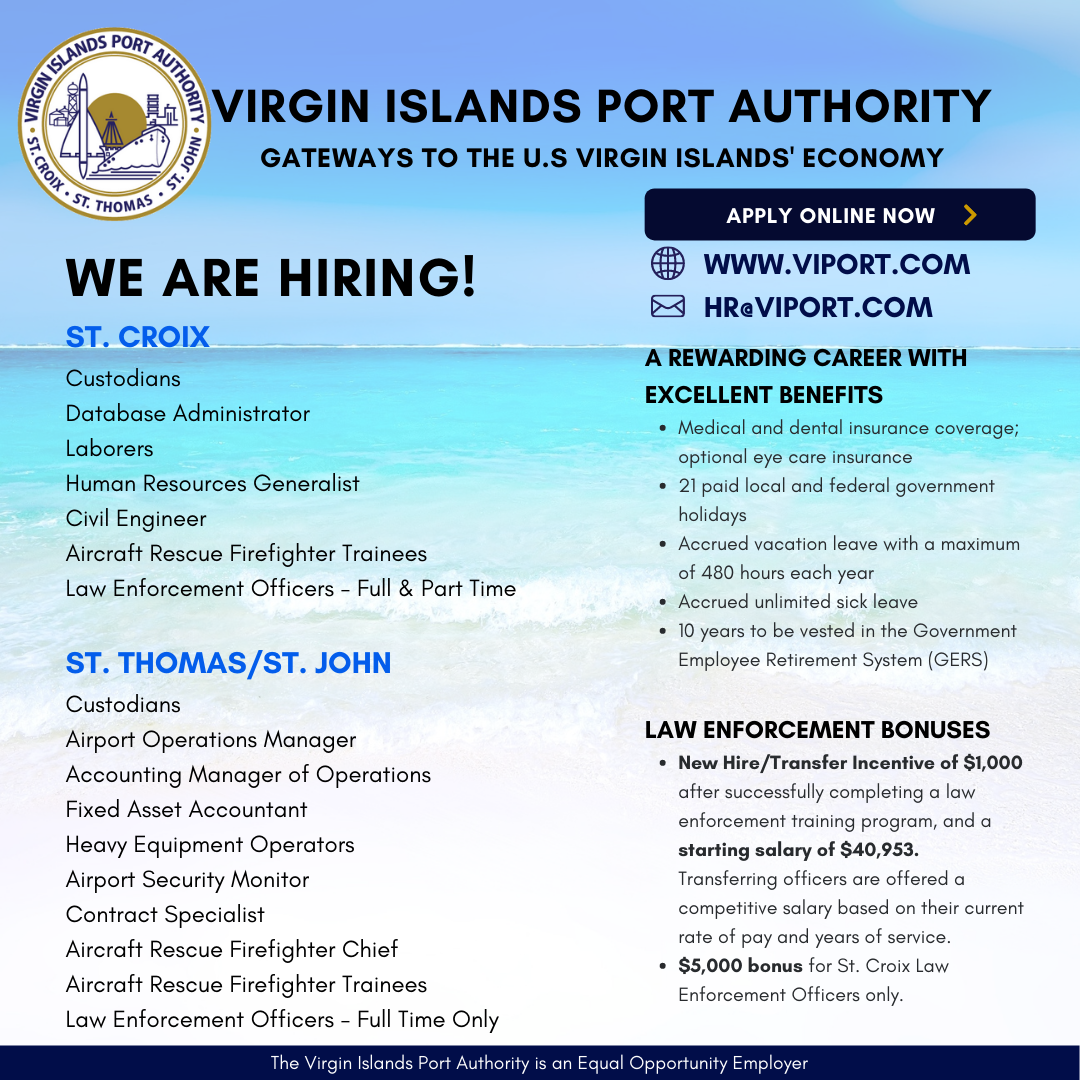The WICO Dock in St. Thomas. Photo Credit: ERNICE GILBERT, V.I. CONSORTIUM
The West Indian Company’s financial woes have sent the company into a “downward spiral” according to chair of the Senate Budget, Appropriations and Finance Committee Donna Frett-Gregory, as she admonished WICO representatives to find more creative ways to generate income.

Ms. Frett-Gregory and her colleagues on the committee were listening to WICO CEO Anthoney Ottley on Tuesday as he detailed the difficulties the company is facing in bouncing back in the post-pandemic years.
Chief among its financial troubles is WICO’s inability to pay their PILOT (payment in lieu of taxes), a $700,000 annual fee remitted to the Government of the Virgin Islands. For Mr. Ottley, “WICO’s growth and progress continue to be stymied by the burdensome $700,000 annual payment.” The PILOT was last paid in full in 2006. Since then, WICO has accrued a debt of over $10 million to taxpayers, despite making some payments along the way.
WICO’s inability to pay the PILOT is also due to the development of Crown Bay and the Austin "Babe" Monsanto Marine Terminal, Mr. Ottley said, which according to him “siphoned more than 30 percent of WICO’s cruise ship traffic to its facilities without the company receiving the immediate necessary reduction in its pilot,” Mr. Ottley accused. He confirmed to Senator Dwayne DeGraff that WICO would welcome the “forgiveness of the PILOT” and the establishment of a new payment system calculated as “a percentage of our net operating expenses.” WICO is suggesting 5%.
Despite being included in their budget projects, WICO has “still not reached a point where we may be able to pay the PILOT.” Mr. Ottley told Senator Samuel Carrion that the company would need to be generating $4-5 million dollars above current revenue levels to start making a dent in the $10 million debt. Lawmakers, however, shied away from making any definitive pronouncements on the possibility of debt forgiveness. Senator Novelle Francis, for his part, suggested that WICO submit a white paper to the legislature with details on how offsetting the PILOT could benefit WICO.
What several committee members were forthcoming with, however, were suggestions on how WICO could develop novel ways to generate income. Currently, WICO makes money through $7.80 collected from the $14.64 per head passenger fee on each cruise traveler, accounting for 80% of annual revenue. Water sales, as well as property and warehouse rentals also contribute to WICO’s revenue. However, that is not enough to meet all the company’s expenses.
In his testimony before the committee, Mr. Ottley acknowledged that “it is imperative that we identify and pursue additional revenue streams.” He assured lawmakers that WICO has begun to “[diversify] its offerings on the dock and development of surrounding property.”
Mr. Francis’s suggestions on how WICO could earn more income included partnering with the Water and Power Authority to get berthed cruise ships to pay for electrical connections through a process called “shore power”. It’s something that Mr. Ottley said is being considered, along with additional water supply to the ships. A third option, developing undeveloped land in Estate Liverpool, has been in discussion for almost 20 years.
Meanwhile, Ms. Frett-Gregory also hinted at utilizing the Estate Catherineberg property for which provisions for sale to the government were made under a 2017 law. “I think that we are at a place where we clearly understand that if we gonna give something, we gonna get something.”
Further, the budget committee chair made it clear to WICO that “if we are talking about dialing back on the PILOT, you also need to show that you are doing everything within your ability to generate additional revenue.” She notified WICO that it would be brought back before the committee toward the end of the budget season to provide an update on the establishment of a partnership for shore power from WAPA, particularly as Mr. Ottley affirmed that initial conversations had already begun.

Outside of plans for partnership and development, WICO hopes that come 2025, it will reach pre-pandemic cruise passenger numbers (over 1.1 million), increasing the possibility of being able to make payments toward their mammoth PILOT debt.










